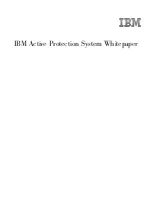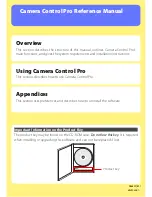
■
Operation, Administration, and Maintenance (OAM) support for
ADSL/ADSL/ADSL2+ ATM mode
■
ATM QoS (supported only when the VDSL2 Mini-PIM is operating in ADSL2
mode)
■
MLPPP (supported only when the VDSL2 Mini-PIM is operating in ADSL2
mode)
■
MTU size of 1500 bytes (maximum)
■
Support for maximum of 10 PVCs (only in ADSL/ADSL2/ADSL2+ mode)
■
Dying gasp support (ADSL and VDSL2 mode)
■
Online insertion and removal (hot swap) for SRX650 GPIMs
—Online insertion
and removal (OIR) functionality is supported on CPU-based and CPU-less
Gigabit-Backplane Physical Interface Modules (GPIMs). You can remove or insert
a GPIM without powering off the device. The following GPIMs are supported on
SRX650 devices:
■
24-port Ethernet GPIM (with and without PoE)
■
16-port Ethernet GPIM (with and without PoE)
■
2-port and 4-port CT1/E1 GPIM
■
Implement the PPPoE-based radio-to-router protocol
—This feature is supported
on SRX Series and J Series devices.
JUNOS Release 10.1 supports PPPoE-based radio-to-router protocols. These
protocols include messages that define how an external device provides the
router with timely information about the quality of a link's connection. There is
also a flow control mechanism to indicate how much data the device can forward.
The device can then use the information provided in the PPPoE messages to
dynamically adjust the interface speed of the PPP links. Use the radio-router
statement from the [
set interfaces <unit>
] hierarchy to indicate that metrics
announcements received on the interface will be processed by the device.
■
Class of service (CoS) for devices operating in transparent mode
—This feature
is supported on SRX3400, SRX3600, SRX5600, and SRX5800 devices.
SRX3400, SRX3600, SRX5600, and SRX5800 devices operating in Layer 2
transparent mode support the following CoS functions:
■
IEEE 802.1p behavior aggregate (BA) classifiers to determine the forwarding
treatment for packets entering the device
Note that only IEEE 802.1p BA classifier types are supported on devices
operating in transparent mode.
■
Rewrite rules to redefine IEEE 802.1 CoS values in outgoing packets
Note that rewrite rules that redefine IP precedence CoS values and
Differentiated Services Code Point (DSCP) CoS values are not supported on
devices operating in transparent mode.
■
Shapers to apply rate limiting to an interface
■
Schedulers that define the properties of an output queue
New Features in JUNOS Release 10.1 for SRX Series Services Gateways and J Series Services Routers
■
113
New Features in JUNOS Release 10.1 for SRX Series Services Gateways and J Series Services Routers
















































